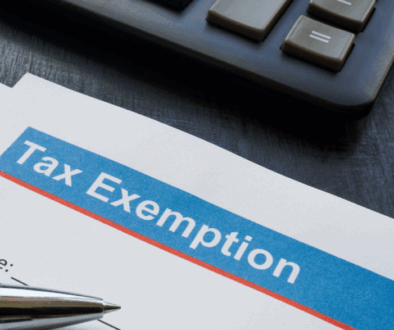Do I need a CPA for my small business?
Do I need a CPA for my small business?
Running a small business can be a rewarding but complex endeavor, and one of the key decisions you’ll need to make is whether to hire a certified public accountant (CPA) to handle your financial affairs. While some small business owners may feel they can manage their finances independently, there are several compelling reasons why partnering with a CPA can be a wise investment for the long-term success of your enterprise.
Understanding the Role of a CPA
A certified public accountant (CPA) is a financial professional who has passed a rigorous examination and met stringent educational and experience requirements set by their state’s board of accountancy. CPAs are trained to provide a wide range of services, from tax preparation and planning to financial reporting, auditing, and strategic advisory. Their experience can be invaluable for small business owners who need to navigate the intricacies of accounting, tax compliance, and financial management.
Reasons to Hire a CPA for Your Small Business
1. Tax Experience and Compliance
One of the primary reasons small business owners hire a CPA is to seek to ensure their taxes are filed correctly and on time. CPAs stay up-to-date with the latest tax laws, deductions, and regulations, which can be particularly complex for small businesses. They can help you maximize your tax savings, avoid costly penalties, and help ensure you remain in compliance with all applicable tax requirements.
2. Financial Reporting and Bookkeeping
Accurate and timely financial reporting is essential for managing cash flow, making informed business decisions, and providing transparency to stakeholders, such as investors or lenders. A CPA can set up and maintain your bookkeeping systems, prepare financial statements, and provide valuable insights into the financial health of your business.
3. Strategic Advisory and Planning
Beyond the day-to-day accounting tasks, a CPA can also serve as a trusted advisor, helping you develop long-term financial strategies, identify growth opportunities, and navigate the challenges that come with running a small business. They can provide valuable guidance on topics such as business structure, financing, and risk management.
4. Audit Preparation and Support
If your small business is ever audited by the Internal Revenue Service (IRS) or another regulatory body, having a CPA on your team can be invaluable. They can help you gather the necessary documentation, respond to inquiries, and represent your interests during the audit process, helping to minimize the stress and potential penalties.
5. Specialized Services
Depending on the nature of your small business, you may require specialized accounting services, such as inventory management, payroll processing, or fraud detection. CPAs can provide these specialized services, helping ensure that your financial operations are running smoothly and efficiently.
When to Hire a CPA for Your Small Business
While there is no one-size-fits-all answer as to when a small business should hire a CPA, there are several key milestones or events that may indicate it’s time to consider partnering with a financial professional:
- When you’re first starting your business and need to establish robust financial systems and processes
- As your business grows and becomes more complex, with increasing revenue, expenses, and transactions
- When you’re planning to expand or make a significant investment in your business
- If you’re preparing to apply for a business loan or seeking external financing
- When you’re facing a major tax event, such as the sale of a business asset or the need to file a complex tax return
- If you’re unsure about your compliance with various financial regulations and want to ensure you’re operating within the law
Choosing the Right CPA for Your Small Business
Not all CPAs are created equal, and it’s important to find one who is a good fit for your small business. When evaluating potential CPAs, consider the following factors:
- Specialization and experience: Look for a CPA who has experience working with small businesses in your industry or with similar financial needs.
- Communication and responsiveness: Choose a CPA who is accessible, responsive, and able to explain complex financial concepts in a way that you can understand.
- Fees and pricing structure: Understand the CPA’s fee structure and ensure it aligns with your budget and the value they can provide.
- Personality and working style: Select a CPA whose personality and working style complement your own, as you’ll be working closely with them on a regular basis.
Conclusion
Hiring a certified public accountant (CPA) can be a game-changer for small business owners, providing experience, guidance, and peace of mind when it comes to managing the financial aspects of your enterprise. By leveraging the specialized knowledge and services of a CPA, you can focus on the core operations and growth of your business, while helping ensure your finances are in order and your compliance obligations are met. As your small business evolves, regularly evaluating the need for a CPA can help you make informed decisions and position your company for long-term success.




